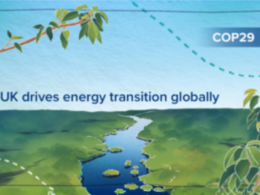The European Commission has proposed a significant relaxation of its 2025 CO₂ emissions targets for cars and vans, offering automakers a three-year window — from 2025 to 2027 — to meet compliance requirements, rather than assessing performance in 2025 alone.
The measure comes in response to mounting pressure from Europe’s automotive sector, which has raised concerns over the stringent rules and the growing dominance of electric vehicle (EV) makers from China and the United States.
“With today’s initiative, we grant more flexibility to this key sector, and at the same time we stay the course of our climate goal,” said Commission President Ursula von der Leyen. Earlier this month, von der Leyen had promised to give carmakers “breathing space,” following warnings that the industry could face up to €15 billion in fines under the original 2025 rules.
Under current EU regulations, manufacturers are required to ensure that at least 20% of their car sales are electric to meet emissions caps. The proposed adjustment would calculate a manufacturer’s compliance based on average emissions over the three-year period from 2025 to 2027 — effectively softening the immediate pressure.
The proposal must now be approved by the European Parliament and EU member states, who may seek further amendments. The Czech Republic, a major car-producing nation, has already indicated it will push for a five-year compliance window.
While some leading manufacturers — including Volkswagen and Renault — have welcomed the suggested delay, not all industry players are in agreement. Volvo Cars, which is majority-owned by Chinese EV giant Geely, warned that relaxing the rules could penalise firms that have already invested heavily to meet the original 2025 targets.
E-Mobility Europe, an electric transport advocacy group, also criticised the move, arguing it would undermine Europe’s EV competitiveness and slow investment in essential infrastructure such as charging networks.
Meanwhile, attention is turning to the EU’s longer-term climate policy mandating that all new cars sold from 2035 must be zero-emission. Although the Commission has stood firm on the 2035 deadline — describing it as essential to meet the bloc’s climate objectives — a growing number of lawmakers and national governments are expected to push for a review later this year, citing concerns over the impact on an already strained automotive industry.
The latest proposal reflects the Commission’s attempt to balance industrial realities with environmental ambition — a negotiation that is likely to intensify in the months ahead.
















